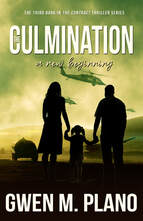I hadn’t met Rick before the police called early one Friday morning. Like many students, he had been drinking at a local bar. His buddies returned to campus, but Rick refused to leave and continued drinking until he finally collapsed unresponsive on the floor.
When I arrived at the hospital, I was told that Rick’s blood alcohol level was higher than any they had ever recorded. The doctor did not expect him to live.
I held this once robust nineteen-year-old’s hand for hours that night, listening to his every breath. I told him he had to live; I told him firmly – repeatedly. His parents needed him, I said. His friends needed him. He was too young to die; there were things he needed to do. He had to survive.
As morning light began to flood the room, his parents arrived. They had driven from Massachusetts, knowing that they might never have a conversation with their son again. We spoke briefly, and I left to get my own sons ready for school.
Two days later, I received word that Rick had regained consciousness. I went to the hospital to see him and talk with the parents. Rick did not know me and was perplexed when he saw me in the room. But as soon as I said, “Hello Rick, how are you feeling?” he responded. “I know who you are. I know your voice. You are the one who told me I had to live.”
Because of Rick, I talk with those who cannot speak.
I mention this because earlier this month, my dad passed away. As he lay in a coma, I said my final goodbyes while holding his arm – the arm which prior to an accident had had a hand. Dad heard me through the weight of deep sleep and moved this arm. But, it was when I told him that all of his children would take care of mom, that his breathing changed. Slower and slower, it became – until it was no more. I could hear the I love you, as times past and dreams future embraced.
If you are blessed to be bedside with someone who cannot speak, remember Rick and know that you might have the words that this person needs to be at peace.








 RSS Feed
RSS Feed